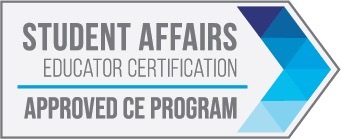
Culture of Respect Webinar: "What Do You Want Us to Do About It?" Graduate Students' Experiences With Sexual Harassment
-
You must log in to register
- Non-member - $179
- Member - $79
National data consistently shows that graduate and professional students face higher rates of sexual harassment and have lower awareness of on-campus resources. This webinar will present key findings from a 2021 sexual assault climate survey conducted at a large public research institution in the Midwest, focusing specifically on graduate and professional students, who comprised 19.6% of the total sample. Findings reveal that 39% of graduate and professional students reported experiencing at least one incident of sexual harassment by a university employee since enrolling, with 45% identifying a faculty member as the perpetrator. Examining data on graduate and professional student survivors’ experiences and challenges within the campus environment offers critical insights for student affairs professionals to enhance prevention, advocacy, and response efforts.
Learning Outcomes:
- Understand the prevalence and impact of sexual harassment among graduate and professional students, including specific risks posed by university employees.
- Identify key barriers faced by graduate and professional student survivors in accessing on-campus resources and support.
- Develop evidence-based strategies to improve prevention, advocacy, and response efforts for graduate and professional student survivors within campus environments.
Jessica Henault
Program Coordinator, Culture of Respect
NASPA
Jessica Henault, MS (she/her) serves as NASPA’s program coordinator for the Culture of Respect Collective. Prior to joining NASPA, Jessica served as Kansas State University’s first violence prevention specialist, where she worked to develop and employ a university-wide violence prevention plan. Jessica is passionate about improving college campuses’ safety and well-being, earning her master’s degree in Counseling and Student Development with an emphasis in Administration. She is a current doctoral student in the Applied Family Science program at Kansas State, centering her research on prevention sciences.
Continuing Education Credits
Participants who complete the course will be eligible for Continuing Education (CE) credits in the Core Student Affairs Educator Certification (CSAEd™) continuing education.
NASPA has been approved by the Higher Education Consortium for Student Affairs Certification to provide CE credit for Certified Student Affairs Educators (CSAEd). NASPA is solely responsible for all aspects of this program.
Guidelines for earning CE credit
1 CE is awarded for attending this live session OR watching it on-demand for ONE category of Continuing Education. You cannot receive more than 1 credit hour total.
No partial credit will be rewarded.
To receive CSAEd credit, attendees must complete the Feedback Survey in the online event offering the credit. Once the survey is completed, your Certificate will be available in the event modules. The Credit Certificate, which will show the event, date and credit earnings, is available for download and/or print from the event or your Dashboard on the Online Learning Community.
